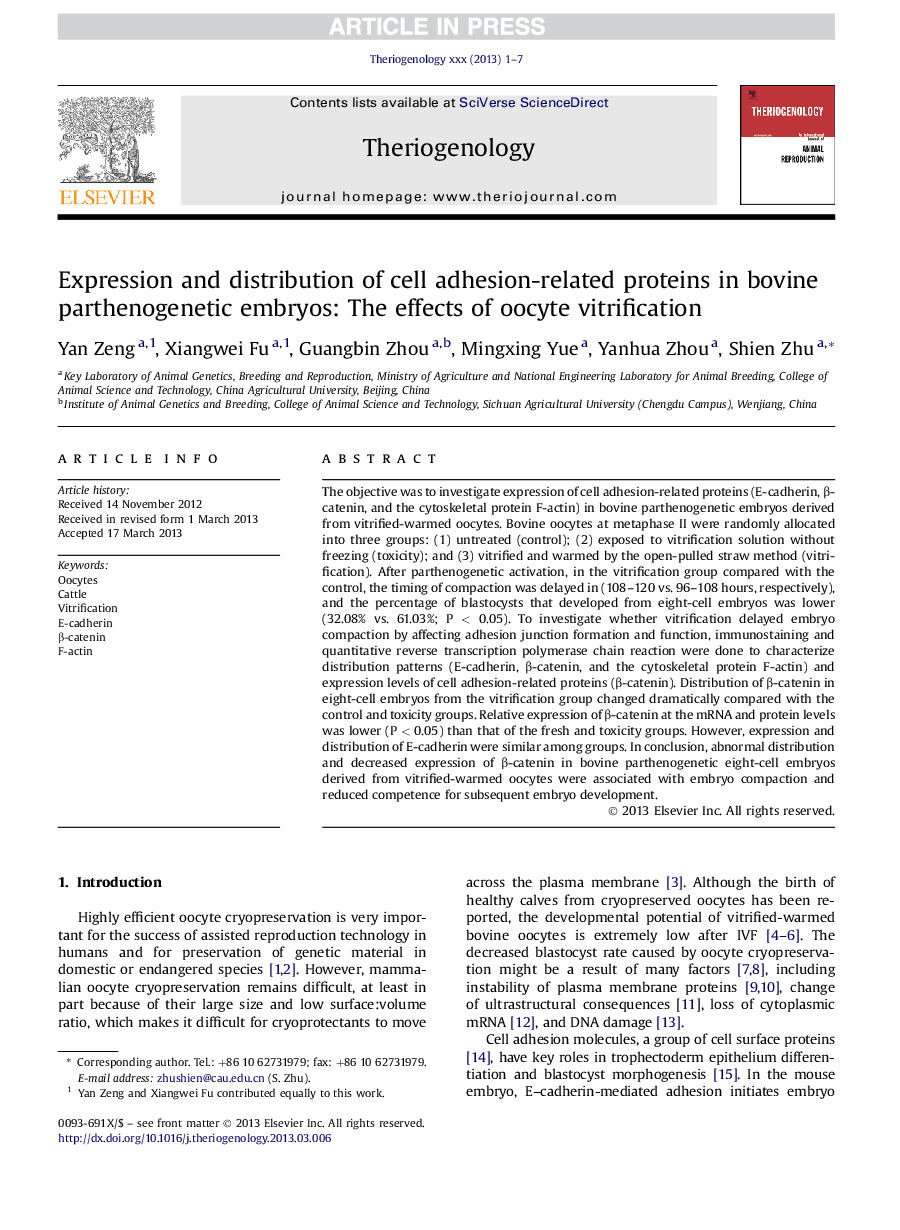| Article ID | Journal | Published Year | Pages | File Type |
|---|---|---|---|---|
| 10894455 | Theriogenology | 2013 | 7 Pages |
Abstract
The objective was to investigate expression of cell adhesion-related proteins (E-cadherin, β-catenin, and the cytoskeletal protein F-actin) in bovine parthenogenetic embryos derived from vitrified-warmed oocytes. Bovine oocytes at metaphase II were randomly allocated into three groups: (1) untreated (control); (2) exposed to vitrification solution without freezing (toxicity); and (3) vitrified and warmed by the open-pulled straw method (vitrification). After parthenogenetic activation, in the vitrification group compared with the control, the timing of compaction was delayed in (108-120 vs. 96-108 hours, respectively), and the percentage of blastocysts that developed from eight-cell embryos was lower (32.08% vs. 61.03%; P < 0.05). To investigate whether vitrification delayed embryo compaction by affecting adhesion junction formation and function, immunostaining and quantitative reverse transcription polymerase chain reaction were done to characterize distribution patterns (E-cadherin, β-catenin, and the cytoskeletal protein F-actin) and expression levels of cell adhesion-related proteins (β-catenin). Distribution of β-catenin in eight-cell embryos from the vitrification group changed dramatically compared with the control and toxicity groups. Relative expression of β-catenin at the mRNA and protein levels was lower (P < 0.05) than that of the fresh and toxicity groups. However, expression and distribution of E-cadherin were similar among groups. In conclusion, abnormal distribution and decreased expression of β-catenin in bovine parthenogenetic eight-cell embryos derived from vitrified-warmed oocytes were associated with embryo compaction and reduced competence for subsequent embryo development.
Related Topics
Life Sciences
Agricultural and Biological Sciences
Animal Science and Zoology
Authors
Yan Zeng, Xiangwei Fu, Guangbin Zhou, Mingxing Yue, Yanhua Zhou, Shien Zhu,
